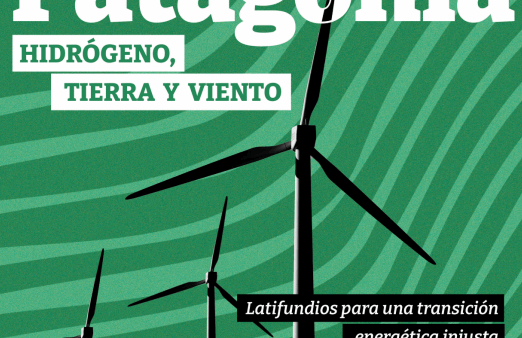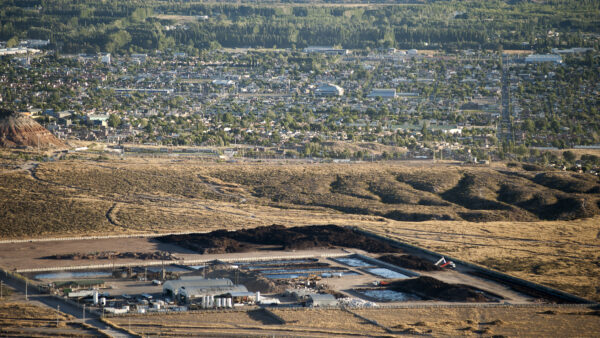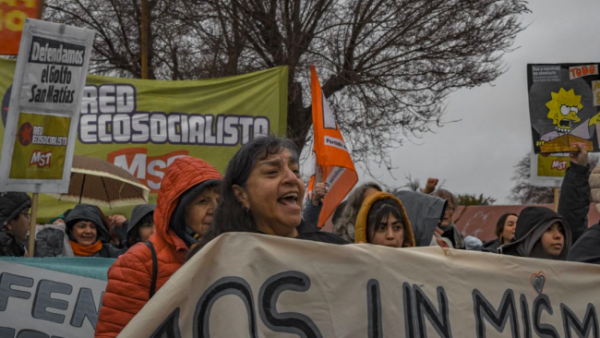The world is facing a major environmental crisis for which the prevailing energy paradigm—a 72% of which consists of fossil fuels (coal, oil and gas)—is mainly responsible, due to greenhouse gases (GHG) emissions. Not only pollution but also unequal access to energy and corporate capture are the central pieces of the global energy matrix that is the foundation of the model of accumulation.
Full report – Download
As a response to this complex picture, the concept of “energy transition” has had an increased presence in the agenda of different types of bodies in recent years. However, the most widespread perspectives are almost exclusively focused on the shift from fossil to renewables sources. This view, which we consider partial, does not question the current model, where energy is taken as a commodity instead of as a right. Similarly, strictly technical perspectives do not question another fundamental aspect of this problem—the future of energy generation. In short, these approaches leave aside a necessary reflection on the link between energy and the mode of production that has shaped its current form and which they contribute to reproduce.
Nonetheless, since the end of the 1970s, in the context of diverse social struggles, different sectors have tried to consider the transition as a much wider problem than the mere replacement of energy sources. Thus, they began to imagine the consequences that such a transition could and should bring in terms of environment, work, ethnicity, gender and, finally, at a systemic level.
Workers have a central role in this process, because it is their jobs that would disappear or be reconverted if the transition moves forward. For that reason, the idea of a Just Transition was elaborated by unions in dialogue with diverse sectors such as the socio-environmental, indigenous and peasant movements. From its origin in the Global North, this notion spread throughout the world and is currently opening deep debates that seek to give it a proper direction. Latin America is not an exception.
In our research, we have arrived at the following key conclusions:
- The notion of a Just Transition emerged from the activities of the Oil, Chemical and Atomic Workers Union (OCAW) in the U.S. state of New Jersey. The OCAW acknowledged the environmental impact produced by their branch of industry and demanded a transition in which the working class would not have to pay a high cost.
- From its birth until the year 2000, the idea of a Just Transition spread throughout the labor world of North America and Europe, creating communicating vessels with environmental, social and political movements.
- In the new millennium, the concept acquired a global reach, becoming part of the agenda of global governance bodies, as well as a recurrent topic in meetings such as the United Nations Climate Change Conferences (COP). However, this higher reach implied the loss of its original specificity, and so different groups assign it different meanings according to their own backgrounds and needs.
- From 2010 onwards, three more or less defined concepts regarding a potential energy transition can be identified. First, a Corporate Just Transition, linked to business sectors that consider that the climate crisis offers a new business niche, which is expressed in the premise of a “green economy”. The second was originated in the union movements and advocates a Just Transition with Social Dialogue, presenting a critical view of the current state of affairs, and promoting negotiations with both businessmen and the State, in order to prevent the working class from being the most harmed sector in a transition they consider unavoidable. Finally, a series of social, labor and political groups are inclined towards what we call here a Popular Just Transition. With a similar appraisal of the situation as that of the social dialogue, those who uphold this position understand that the energy transition is only possible if the social relations of production as a whole are put into question.
- In Latin America, unions have a strong influence in these debates. Although they have a long history in the region, these notions began to be discussed through institutional channels after milestones such as the creation of the Trade Union Confederation of the Americas (TUCA-CSA) in 2008. In 2012, the affiliation of several of its members to the Trade Unions for Energy Democracy (TUED) also allowed for an advance in the debates regarding Just Transition.
- Since 2015, the advance of right-wing politics redefined the priorities of union activism in the region, and the centrality of the debate about Just Transition diminished.
- Different sectors from labor, union, social and indigenous movements in Latin America highlight the need to consider Just Transition both regionally and systemically. This includes taking into account the complete set of inequalities that the present mode of production reproduces, whether of class, gender, race, or any other kind.
- In this sense, another important element is the need to establish the specificities of Just Transition in the Global South, in order to differentiate it from its counterpart in the North, since every territory has its own characteristics, even within the peripheral countries themselves. During the last decade, there has been an emergence of spaces of encounter and debate that seek to dialogue taking each difference into account.





